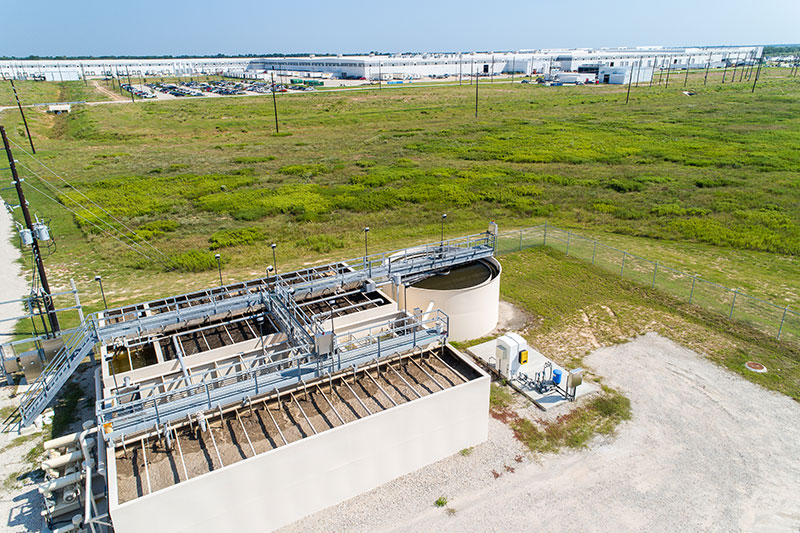The water industry must tackle challenges associated with population growth, climate change, and water scarcity
The global water and wastewater treatment industry is projected to grow rapidly over the next few years, increasing from $323 billion in 2023 to $536 billion by 2030, exhibiting a compound annual growth rate of 7.5% between 2023 and 2030, according to a report released by Fortune Business Insights.
Let’s examine some of the factors driving this growth and peek at what the future is likely to look like.
The Impact of Population Growth
With the global population steadily increasing, urban areas are expanding, and so is the need for wastewater treatment facilities to serve these communities. There is also a greater demand for water, and in a world where water scarcity is a challenge in many regions, we cannot afford to waste or contaminate this valuable resource.
The implementation of more stringent environmental regulations to protect freshwater resources means that industries can no longer discharge inadequately treated effluent into waterways; they must meet stricter standards.
These factors have led to a shift toward decentralized wastewater treatment. Rather than being hauled in by tankers or pumped along an extensive network of pipes to a distant central point, sewage and industrial wastewater are treated on-site or close to where it is generated.
Decentralized wastewater treatment offers several benefits: It is cost-effective, as there is no need for extensive pipelines; its compact design has a smaller footprint; it is flexible and scalable; it allows wastewater to be recycled for local reuse; it saves time and money, and it can be financed through flexible financing agreements, such as plant leases or Water-as-a-Service® (WaaS®) partnerships.
Sustainability Commitments Drive Advancements
The United Nations defines sustainable development as development that meets the needs of the present without compromising the needs of future generations. The U.N. has issued The 2030 Agenda for Sustainable Development, at the core of which are 17 Sustainable Development Goals (SDGs). They include goals that focus on clean water and sanitation; affordable and clean energy; industry, innovation, and infrastructure; sustainable cities and communities; responsible consumption and production; climate action; life below water, and life on land.
Recycling wastewater for reuse is a tool to manage water more sustainably and to address water shortages. Wastewater reuse is widely recognized for its advantages. In regions facing water scarcity, it serves as a crucial resource, expanding the available water supply, optimizing usage, and fostering a symbiotic relationship between businesses, industries, and communities.
With climate change, there is also a pressing need to curb greenhouse gas emissions. In a decentralized wastewater treatment system, the use of short-distance conveyance can eliminate anaerobic environmental conditions, potentially reducing methane emissions and saving energy consumption associated with pumping.

Decentralized wastewater treatment presents cost-effectiveness with minimal pipeline requirements, a compact footprint, scalability, and the opportunity for local wastewater recycling.
Greenhouse Gas Is Captured and Used
Waste-to-energy technologies use anaerobic digestion to convert organic-rich wastewater into biogas that can power the treatment plant. Instead of being released into the environment, this potent greenhouse gas is captured as a valuable source of energy.
Another valuable resource recovered in the process is nutrient-rich digestate, which is a soil enhancer. Nutrients can also be removed from the digestate and used as a concentrated fertilizer to boost crop growth, thereby reducing the need for chemical fertilizers.
Capturing methane reduces greenhouse gas emissions, and recovering nutrients for fertilizer reduces the amount discharged into freshwater systems, where they can cause eutrophication and harmful algal blooms. Removing these waste products for reuse is a win-win for humankind and the environment and aligns with the U.N.’s 2030 SDGs.
Development of Technologies to Improve Water Quality
Finally, growing concern over emerging contaminants such as pharmaceuticals and per- and polyfluoroalkyl substances (PFAS) is likely to drive the implementation of advanced water treatment technologies to reduce potentially harmful organic compounds found in wastewater. New contaminants are emerging all the time, requiring new treatment methods and technologies to remove them. One strategy might be to leave space on the wastewater treatment site to allow for the installation of new plant technologies or future upgrades.
One of the biggest obstacles to implementing new technologies is the longevity of existing equipment. Many aging wastewater treatment plants are still operating, and even while outdated, still provide adequate service. Because upgrades and replacements can be costly, there must be a good motivation to do them.
Seven Seas Offers Solutions
Opting for a Seven Seas WaaS® partnership is one way to keep up with the rapid advances in technology without having to outlay vast amounts of capital. Seven Seas will build a new wastewater treatment plant or acquire and upgrade an existing facility and operate it for clients, guaranteeing capacity and water quality while ensuring optimal and sustainable use of resources.
In coming years, wastewater treatment plants are still likely to be using primary, secondary, and tertiary wastewater treatment models, incorporating technological advancements that focus on improving efficiency and resource recovery in an effort to meet Net Zero targets and SDG commitments.
Contact Seven Seas to find out more about our innovative wastewater treatment and our cost-effective WaaS® and lease plant financing solutions.
Image Credit: nijieimu/123rf
